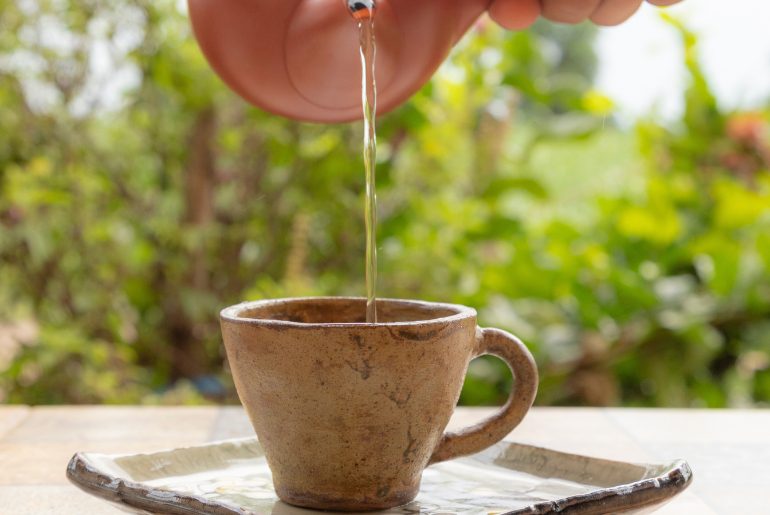The rainy season can be beautiful, with its cool breezes and green landscapes, but let’s be honest, it also leaves many of us feeling slow, tired, and out of sync. Ayurveda, the ancient Indian science of wellness, has a gentle solution to help with just that in the form of tea. Founder & CEO of Butterfly Ayurveda & Cafe Swasthya, Akshi Khandelwal, an Ayurveda expert, shared all about why monsoons affect us this way and how Ayurvedic tea rituals can help you feel better.
Why Do We Feel So Sluggish During Monsoons?

As per Ayurveda, the Tridosha can be disturbed by the rainy season. These are the three basic energies or doshas in our body: Vata, Pitta, and Kapha. “When these energies go out of balance, we often feel bloated, heavy, low on energy, and mentally foggy,” says Akshi Khandelwal, Founder & CEO of Butterfly Ayurveda & Cafe Swasthya. “Digestion slows down, motivation dips, and even rest doesn’t feel fully restful,” she adds.
To deal with this lethargy that affects our entire day, most of us lean towards grabbing a second or third cup of coffee or munching on deep-fried comfort foods. Yes, they offer a temporary boost but also leave us feeling worse later. Therefore, Ayurveda offers a more intelligent and sustainable method of taking care of yourself during the monsoon.
Ayurvedic teas are made using herbs that bring the body back into balance, gently and naturally. Herbs like Brahmi, Ashwagandha, Cinnamon, Lemongrass, Fennel, and Ginger all work together to give you energy, focus, and calm. “These herbs aren’t just traditional remedies,” Akshi explains. “They work in tune with the body’s needs during the monsoon.”
While a ginger & fennel blend can help warm the body and ease bloating, cardamom & mint cool and refresh the system, especially when the body feels overheated or acidic. Black pepper tea can help you feel lighter and more active and ashwagandha helps in reducing stress and tiredness by stabilising your body’s stress hormone, cortisol. Brahmi & Shankhpushpi tea helps clear your mind, improve focus, and reduce brain fog.
Also Read: Karnataka Bakeries Halt Tea, Coffee Sales & Display ‘No UPI Signs’; Here’s Why
Ayurvedic Tea Blends For Different Times Of The Day
What makes Ayurvedic tea rituals so simple and doable is that they can be woven into your day, just like your regular chai breaks. You don’t have to make big changes; just swap your usual cup for one that supports your body. Start your day with a light blend of Brahmi, Tulsi, Mulethi, and maybe some green tea. It wakes up your mind without the caffeine crash.
If you’re feeling heavy after lunch, a cup with fennel and ajwain will soothe your stomach and help you feel more active. For a dose of calm in the evening, you can go for a mix with mint, ajwain, fennel, and Shankhpushpi. It’s great for digestion and also helps relax your mind. “It’s the kind of tea that feels like a reset without making a big deal about it,” says Akshi.
Let’s not forget the snacks. In Ayurveda, even something as small as a cookie can have health benefits if it’s made right. Try Ajwain cookies that aid digestion or baked goods with mint, cumin, or roasted black gram that boost mood and support your gut. “Even snacks rooted in traditional ingredients can serve a deeper purpose. They feel more like mood boosters and digestive treats,” Akshi shares.
What’s truly special about these Ayurvedic tea rituals is how easy and effective they are. Instead of reaching for more caffeine or another sugar-filled treat, try brewing a cup of Ayurvedic tea. “Sometimes, a good cup of tea, made with herbs that truly support you, is all it takes to feel better,” says Akshi.
So this monsoon, turn your chai time into a moment of real care with these Ayurvedic teas.
Cover Image Courtesy: Canva/Pavmon80
For more such snackable content, interesting discoveries and the latest updates on food, travel and experiences in your city, download the Curly Tales App. Download HERE. First Published: July 24, 2025 2:04 PM




